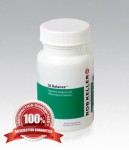
I always found this story to be very interesting because to many folks, living in our artificially disinfected world, bacteria is the enemy. Actually. it isn’t.
A perplexed Dr. Alexander Khoruts had run out of options for treating a patient with a wicked case of Clostridium difficile. Antibiotics didn’t help so Dr. Khoruts decided his patient should have a transplant. He transplanted some bacteria from her husband.
Prior to the procedureit was noted that her intestinal flora was almost non existant. “The usual bacteria just wasn’t there in her,” said Dr. Khoruts. “She was inhabited by all kinds of misfits.” Fourteen days after the procedure, the transplanted microbes were dominant. “That population was able to function and cured her condition quickly”.
To say that the scientific community was surprised with the outcome is an understatement. It shouldn’t be. Researchers are often blown away by the inter workings, impact, and sheer number of bacteria that populate our systems. We have over 10 times more bacteria than cells.
We end up with populations of different species, but they usually conduct the same essential chemistry that we need to survive. One of those functions is breaking down complex plant molecules. We have a pathetic number of enzymes encoded in the human genome, so we rely on extra microbes. As well as supporting the digestive function, the microbiome helps us in a variety of other ways. The bacteria in our nasal passage, for example, make antibiotics that battle the dangerous pathogens we inhale.
In order to work in harmony with our internal flora, our own bacteria population, our immune system has to be able to tolerate thousands of harmless bacteria while attacking unfriendly ones. Researchers are seeing that the microbiome itself guides the immune system to the proper balance. One way the immune system fights pathogens is with inflammation, but too much inflammation can be harmful, so we also have immune cells that produce inflammation-reducing signals. With their ability to contain unrestrained free radicals, antioxidant populations also support an inflammation fighting function.
Scientists are finding new links between our inner flora and our health. They’re also learning that many illnesses are accompanied by significant changes in the makeup of our inner ecosystems or bacteria populations. For example, people with asthma have a different collection of microbes in their lungs than healthy people. Obese people also have a different set of bacteria species in their digestive tracts than people of normal weight.
Some studies suggest that babies delivered by Caesarian section are more likely to get skin infections since they might lack the protective covering of bacteria from their mother’s birth canal. Caesarean sections have also been connected to an increase in asthma and allergies in kids. So have the high use of antibiotics in the United States and other developed countries. Farm children who are most likely to be exposed to healthy microbes from the soil are less likely to get autoimmune disorders than their peers who grow up in the city.
We consistently underestimate the importance of microbes and bacteria to our health and our medical profession has been too quick to take out their pads of paper and write up prescriptions for antibiotics and synthetic drugs.
Against this backdrop there has been a sudden upsurge in interest of probiotics and I think that probiotic supplements are pretty much a no-brainer given all the antibiotics most of us are exposed to over our lives. One probioitc suplement you might want to try is G.I. Balance – Dr Keller’s Immune System boosting probioitc